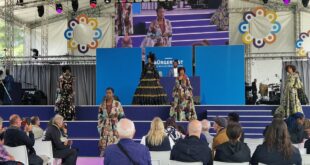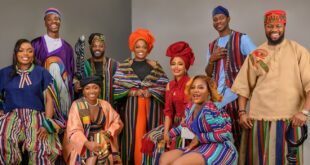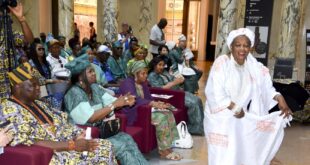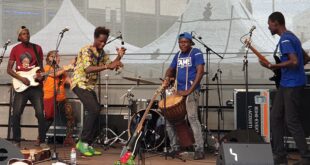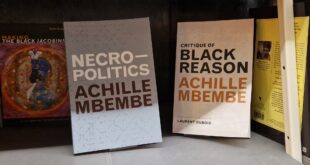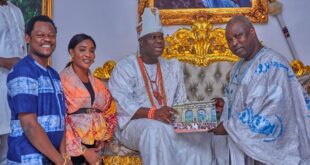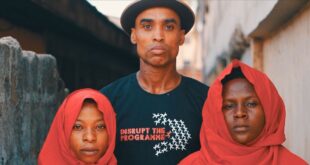The great woman of letters and Nobel laureate Toni Morrison died on Wednesday at 88, throwing her worldwide legion of admirers into mourning. Our contributing editor, Berlin-based medical doctor and creative writer Michael Nnaji, pays tribute to Morrison and locates in her body of work the essential message of the African-American writer to Black people everywhere.
The African-American writer Toni Morrison has died, aged 88, after a brief illness. Former US president, Barrack Obama, led with the tributes, calling her “a national treasure” and her body of work “a challenge to our conscience and a call to greater empathy”.
Obama was not just engaging in rhetorical revelry but was rather hitting the nail on the head. It is said of some writers of being incapable of writing a boring sentence. This aptly describes the writings of Toni Morrison. I, myself, was first enthralled by the writer about 1993, following her conferment with the Nobel Prize in Literature – the first African-American woman to be accorded such a great honour. Born Chloe Adrelia Wofford in Lorain in the US city of Ohio, she once recalled that reading in her working class family back then was regarded as bold. She dreamed of becoming a dancer but, thankfully, changed her mind after reading the likes of Richard Wright, Jane and Austen and Mark Twain.
With her over six decades’ output of qualitative literary work, Morrison’s place in the Pantheon of Great Writers of African Descent is assured. We can firmly place her along the likes of Wright, James Baldwin, Wole Soyinka, Chinua Achebe, Maya Angelou and Alice Walker.
Most of her writing centres around the (unsavoury) Black experience in America, from slavery, police brutality and sundry social injustice visited on the African-American.
Morrison initially worked as an editor for the revered publishing group, Random House, while raising two kids. She, like Achebe before her, once quipped that “if the book you’d like to read doesn’t already exist, then you’d had to write it yourself”. In order words, she felt that the issue of Black Oppression hadn’t been dealt with adequately in American literature.
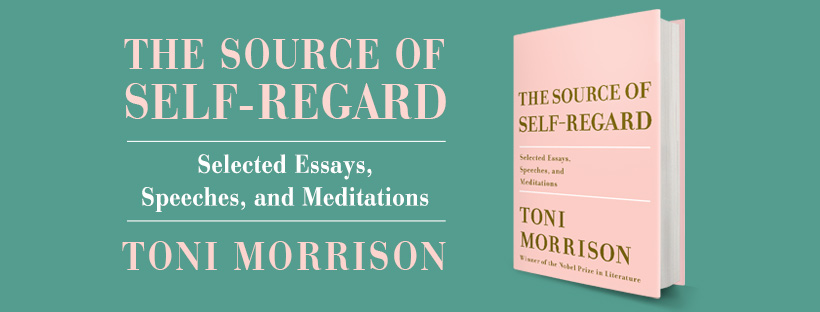
Her first book, The Bluest Eyes wasn’t published until she was 39. Due to the exactions of single motherhood, it was written mostly in the wee hours of the morning, and tells of an 11-year-old girl who fervently prayed that the colour of her eyes would turn blue believing that everything would be right if she was a white, blonde and blue-eyed beauty like the child actress Shirley Temple, as Morrison used the technique of irony to portray the self-defeatism and lack of self-esteem that characterizes Black Life not just in America. This lack of self-esteem she attributed to the “dominant gaze of the White man”, which she seldom gave room in any of her fiction. It’s was a subtly delivered bold message to Black people to not allow others to define them.
Indeed, Morrison sought to give voice to an array of Black authors during her time as an editor. In 1972 she helped release the volume of literary work “Contemporary African Literature” that brought the world’s attention to the likes of Achebe and Soyinka. Lately, she championed the likes of Ta-Nehisi Coates, author of the soul-stirring Between The World and Me.
In its tribute to Morrison following her demise, the American weekly TIME called her “the seminal author who stirringly chronicled the Black American Experience”. Sonny Mehta, Chairman of Knopf, her publishers, said: “Toni Morrison’s working life was spent in the service of literature: writing books, reading books, editing books, teaching books. I can think of few writers in American letters who wrote with more humanity or with more love for language than Toni. Her narratives and mesmerizing prose have made an indelible mark on our culture.”
In a speech celebrating Achebe’s novel Things Fall Apart in 2008, she declared that “We die. That may be the meaning of life. But we do language. That may be the measure of our lives”. Few people “did” language better than Morrison, for she explored the whole gamut of the human condition, leaving the reader with not just memorable phrases but also a sort of manual on how to deal with this thing called life.
Morrison was a writers’ writer, all elegant and poignant prose that kills you softly, subtly. She could be honestly brutal sometimes as well, discarding the gloves of political correctness as when she declared during the heat of racial tensions in America that it would all be done if a Black police officer shot dead an innocent white boy”.
READ ALSO Vienna-based Beatrice Achaleke recounts encounter with Toni Morrison that changed her life
It was as if she was hearkening to the words of fellow Nobel laureate, the South African Nadine Gordimer that “a truly living human being cannot sit on the fence”. Morrison firmly and unapologetically took the side of the oppressed. “The essence of freedom is to help free others”, she once famously declared. She was regarded as America’s conscience.
In recognition of her work, Morrison received, in addition to the Nobel Prize, numerous honours including the National Book Award and the Pulitzer Award. Obama, an unabashed fan himself, awarded her the Presidential Medal of Freedom in 2012, the highest civilian award in the US, finally cementing her place in the American literary firmament.
Morrison penned 11 novels, 5 children books, two plays, a song cycle and an opera. Morrison might have transitioned but her works live on in our hearts, works that aptly illustrate the revenge of a mortal hand a la Wislawa Szymborska.
Dr Michael Nnaji works at the Charité Hospital in Berlin
 THE AFRICAN COURIER. Reporting Africa and its Diaspora! The African Courier is an international magazine published in Germany to report on Africa and the Diaspora African experience. The first issue of the bimonthly magazine appeared on the newsstands on 15 February 1998. The African Courier is a communication forum for European-African political, economic and cultural exchanges, and a voice for Africa in Europe.
THE AFRICAN COURIER. Reporting Africa and its Diaspora! The African Courier is an international magazine published in Germany to report on Africa and the Diaspora African experience. The first issue of the bimonthly magazine appeared on the newsstands on 15 February 1998. The African Courier is a communication forum for European-African political, economic and cultural exchanges, and a voice for Africa in Europe.


